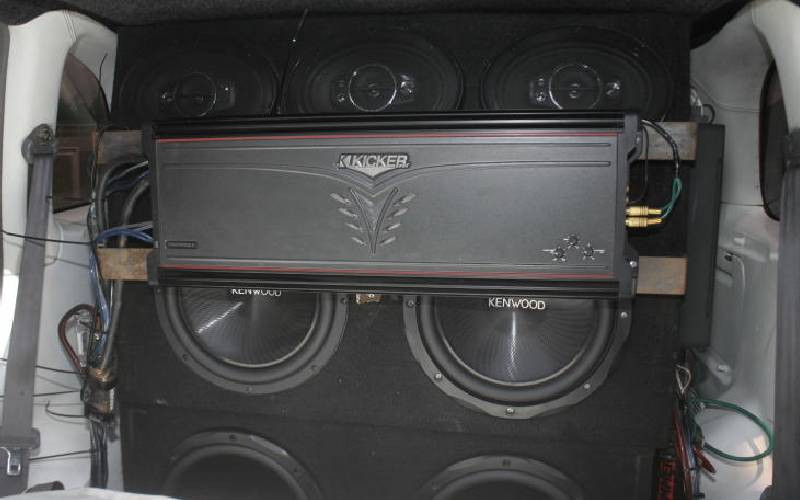
To write that Nairobi is a noisy city would not so true despite the fact that many of its residents tend to think so and they have been making noise about noise levels in the residential areas they thought would be quiet.
People who live in other towns think Nairobi is a stressful place whose residents are always in a hurry to get things done and care less about the feelings of their neighbours. They could be right.
Nairobi residents themselves have mixed opinions, but have few, or no options: They decided to move to Nairobi and have to live with the consequences of their decisions as they spend sleepless nights in their houses because of noise from entertainment joints and churches. Ideally, Nairobi is not noisy as many residents want to think. It is chaotic. And it did not get to that point overnight, or on its own. The regression was gradual, presided over by both the residents and people they elected to look after their interests.
These people they entrusted with power were supposed to provide essential services and ensure they lived in a safe environment where their voices were heard, literally, and their concerns addressed since they did not have to shout over the din of music and sermons from pubs and churches competing for ears and souls.
Residents were not supposed to negotiate with drunken motorists or sober worshipers to give way when they want to drive in to or out of their compounds like they do currently in a modern Nairobi where every road is a parking bay for revelers and worshipers in residential houses-turned-clubs or churches.
Nairobi is generally ugly, and like its residents, it has a dark soul and a big belly - a bottomless pit of frauds, cons, scammers, petty thieves, murderers, daylight robbers in every corner, with the dangerous ones found in the bicameral Parliament and in all government offices and residences. Those who lived in the 'old' Nairobi do not have kind words for this so-called modern city where garbage dumping sites are more than houses and drinking joints and churches in residential areas outnumber schools.
They know its ugly past, but its modern state does not amuse them. They speak of a city in which the authorities used to collect garbage from residential areas and marketplaces without fail. A city which had playgrounds and areas that were designated for entertainment joints, churches and other social amenities.
But all the good things that they speak of were not stolen by aliens. The disorganisation in the city that gets their goat was not created by foreigners or people from other towns. The residents are responsible for the rot. Of course they will trace the rot to the minor issue of Nairobi City Commission, but the commissioners were not operating in a vacuum or doing underhand deals involving open spaces amongst themselves.
Their accomplices were in residential areas, marketplaces, government offices and of course City Hall and Parliament. This does not mean residents cannot complain about the noise in residential areas, either from churches or entertainment joints. The older Nairobi resident handed the baton of destruction and degeneration to the younger ones. They taught their sons and daughters and grandchildren and nieces and nephews and husbands and wives how to disturb the peace and destroy the environment.
Like its residents, Nairobi is toxic, in all senses of the word. It is harsh, needlessly so, but when you discover its soft side, your problems and things that cause stress will only increase instead of reducing. This is because you will never want to see its uglier side, and you will keep doing everything possible to avoid seeing its unpleasant side that might spoil your day, or mess up your life.
Working hard in order to avoid seeing the unpleasant side of Nairobi is responsible for the mess residents complain about. It is said that people do not go to Nairobi to look for jobs or work. They go to Nairobi to look for money since jobs or work are available in other areas too.
In this endeavour to look for money, people care less about the number of innocent lives they destroy. The comfort of the person next to them - on the roads, in residential estates, in business premises, in passenger transport, anywhere and everywhere - is the least of their worries as long as they laugh all the way to the bank.
The neighbours who complain about the toxic environment are big players in the ecosystem of destroying the city. As a matter of fact, they patronise the joints, be they churches or clubs, with their friends and relatives and help them flourish.
Yes, Nairobi residents can complain all they want but they deserve the noise in residential areas and generally chaos all over the city because they cause it to happen.
Stay informed. Subscribe to our newsletter
 The Standard Group Plc is a
multi-media organization with investments in media platforms spanning newspaper
print operations, television, radio broadcasting, digital and online services. The
Standard Group is recognized as a leading multi-media house in Kenya with a key
influence in matters of national and international interest.
The Standard Group Plc is a
multi-media organization with investments in media platforms spanning newspaper
print operations, television, radio broadcasting, digital and online services. The
Standard Group is recognized as a leading multi-media house in Kenya with a key
influence in matters of national and international interest.
 The Standard Group Plc is a
multi-media organization with investments in media platforms spanning newspaper
print operations, television, radio broadcasting, digital and online services. The
Standard Group is recognized as a leading multi-media house in Kenya with a key
influence in matters of national and international interest.
The Standard Group Plc is a
multi-media organization with investments in media platforms spanning newspaper
print operations, television, radio broadcasting, digital and online services. The
Standard Group is recognized as a leading multi-media house in Kenya with a key
influence in matters of national and international interest.






